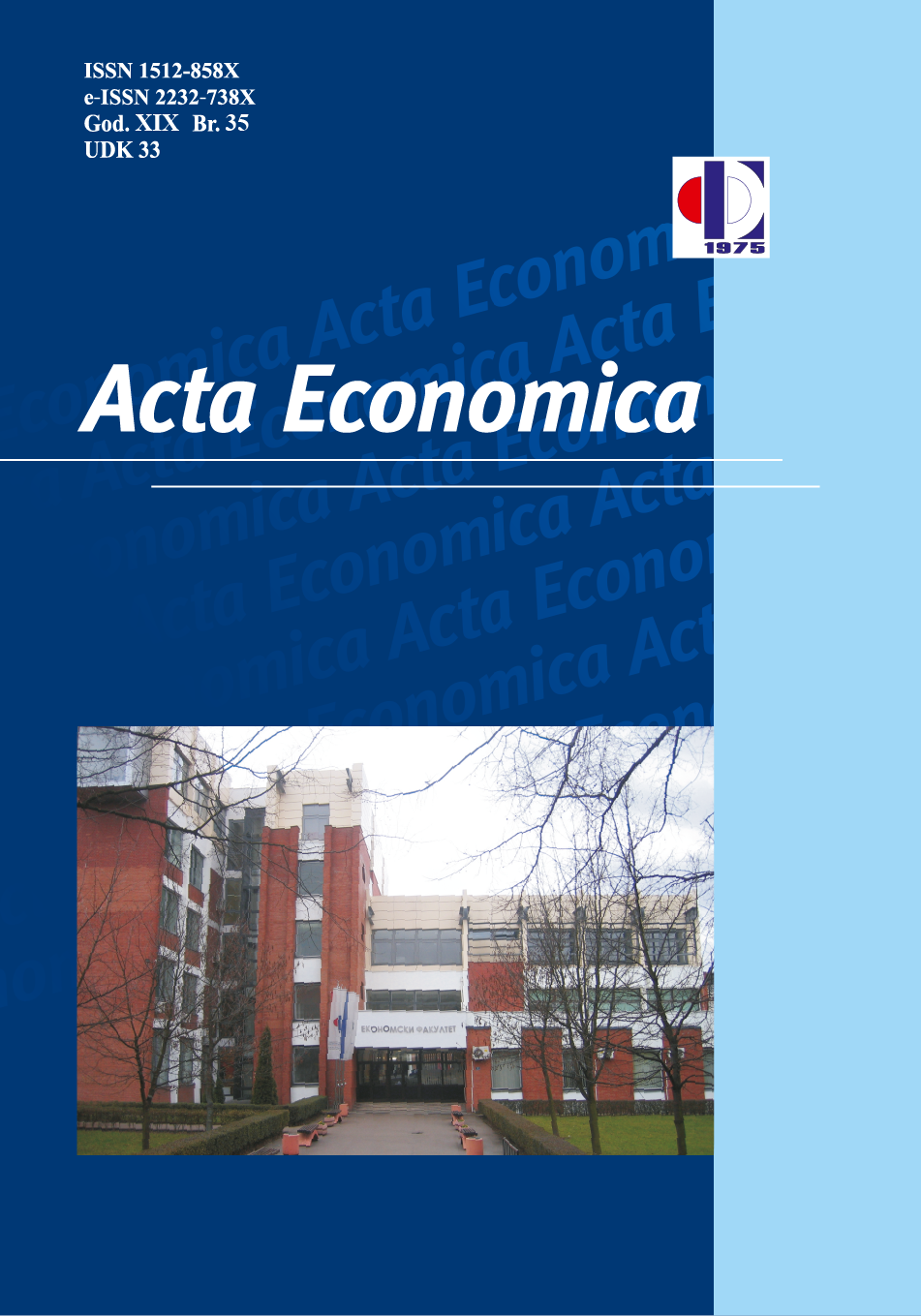STOCHASTIC MODELING OF OPTIMAL LOGISTICS IN THE FUNCTION OF MAXIMIZING INTERNATIONAL BUSINESS EFFICIENCY OF SMEs
DOI:
https://doi.org/10.7251/ACE2135009LAbstract
The concept of business activity conditions specific proce- dures and activities in order to maximize the difference be- tween output and input variables while taking into account the uncertainty of the business outcome. The business out- come is determined by a number of factors that are under the control of the decision maker. However, a number of factors are conditioned by stochastic quantities, which obey the laws of probability of a random variable whose value the decision maker cannot influence but must anticipate and respect in the business decision making process. Con- ditionality of business results with the market component refers to user expectations, and it requires a model approach by which the uncertain business future is recomposed into business expectations, with a high level of reliability. Mod- eling of the system by the process of mathematical simula- tion enables the calculation of variants of business future in the present time without realizing business strategies before their selection and classification. The modeling process in- cludes business system analysis, factor selection, qualita- tive and quantitative expression, classification of variables, functional linking, formulation of probability distribution of random variables, and the choice of time frame for simula- tion. The process of mathematical simulation indicates the management consequences of business alternatives, thus the decision maker is guided by business expectations and recruits business logistics in accordance with the decision. The simulation model is adapted to the specific management problem, specific conditions and circumstances of decision- making. It does not have a universal character and must be constructed specifically for each management situation.

